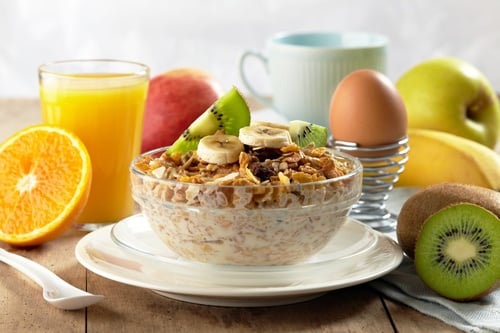So many variables go into a successful IVF cycle, and as fertility experts, we are constantly working to create the optimum environment for fetilization in our lab. The goal is to recreate, as far as possible, the conditions inside the human body. Factors such as the culture medium, temperature, light, and air quality are well studied and understood, but they may only be the beginning. One fertility clinic in Spain has tried a novel approach, and the results of their study are astounding. They have discovered that playing music in the incubator may significantly improve fertilization rates.
SCRC Contributor
Recent Posts
Fresh vs. Frozen Embryo Transfer (FET)
Embryo transfer is the final step of the IVF process, where the embryos which were fertilized in the laboratory are placed into your uterus by your doctor. It is a very quick and simple procedure, which doesn’t require anesthetic, and for many patients it is the most exciting and hopeful moment in what can be a long and demanding process. Either fresh or frozen embryos may be transferred, and you may be wondering which option is best for you. There are some significant differences, and you may be surprised to learn that using previously frozen embryos may offer a higher chance of success for some women. Let us walk you through the pros and cons of both approaches.
It Takes a Village
In the world of fertility, it takes the efforts of more than just one person to complete a successful journey. The very nature of fertility requires the combination of two reproductive cells in order to form life. And for anyone who has struggled with conceiving and has required the help of assisted reproduction, they know that it’s not just their physician who is paramount to their success, but an array of supporting characters. From nurses, embryologists, and ultrasound techs, to pharmacies, financial counselors and support groups, it doesn’t just take one person to create a life; it takes a village.
IVF Diet: Nutritional Guidelines for Your Fertility Treatment
Can what you eat affect your fertility? There is no such thing as a medically proven “fertility diet,” but you can help to lay the groundwork for a healthy pregnancy by paying close attention to your nutrition. Studies have shown that physical fitness can make a difference in IVF outcomes. Both obesity and a too-low body weight can have adverse effects on your fertility and may reduce the success of IVF cycles. While there are many circumstances which can contribute to body weight and health, a good diet is an excellent first step. If you are already at a healthy weight, paying attention to your diet can ensure that you’re getting all of the vital nutrients you need to carry a pregnancy. It is also an exceptional way to offer yourself some care and nurturing as you go through a process which can be emotionally and physically demanding.
What Factors Determine IVF Success Rates?
Will IVF work for you? What are your chances of getting pregnant during an IVF cycle? How can you know if your IVF treatment will be a success? IVF is one of the most effective Assisted Reproductive Technologies (ART) in the world, but whether it will be effective for you in particular depends on a wide range of circumstances. The truth is, no one can tell you for sure whether IVF is the answer you are looking for, but there are some important factors which can affect the probable outcome of IVF treatment.
Factors Affecting the Cost of IVF
When you are considering IVF as an option for growing your family, there are many aspects to consider. The emotional, physical and medical facets of the decision are at the forefront, but the financial side of Assisted Reproductive Technologies (ART) is a serious consideration for many prospective parents. Insurance coverage may be incomplete or non-existent, and paying for these complex procedures out of pocket is a significant investment. Breaking down the price of a typical IVF cycle into its separate components and understanding the many factors which can affect the total cost will help you to understand what to expect.
Questions about IVF Egg Retrieval
Egg retrieval is a pivotal moment in your IVF journey. There has been a lot of lead up to this day, and you may be feeling quite a mix of emotions: excitement, anxiety, or even fear. If this is your first cycle, you may have many questions about the preparation, procedure and recovery. Understanding exactly what will happen through the entire egg retrieval process can help to set your mind at ease.
Genetic Test Could Predict IVF Success
Fertility specialists run a wide battery of tests when assessing a patient for fertility treatments like IVF. The existing tests do a pretty good job determining who may be a good candidate, but they are not foolproof. In some cases, a patient may have promising preliminary test results and the quality of the embryos created during the cycle may be excellent, but still every round of IVF attempted ends unsuccessfully. It is a terrible situation for the patient and for the doctors, who are unable to explain why this woman is unsuccessful when so many other IVF patients are able to carry a baby to term.
Are You a Good Candidate for IVF?
If you’re considering IVF, you’ve probably got a million questions. The road to fertility can be demanding, and many patients come to us with stories of frustration, confusion, heartache, and helplessness. Our role is to support you both medically and emotionally right from the start, and one of the best ways we can do that is through education. If we can give you a clear understanding of all the treatment options available, it will be easier for you to feel confident and in control throughout the whole process.













